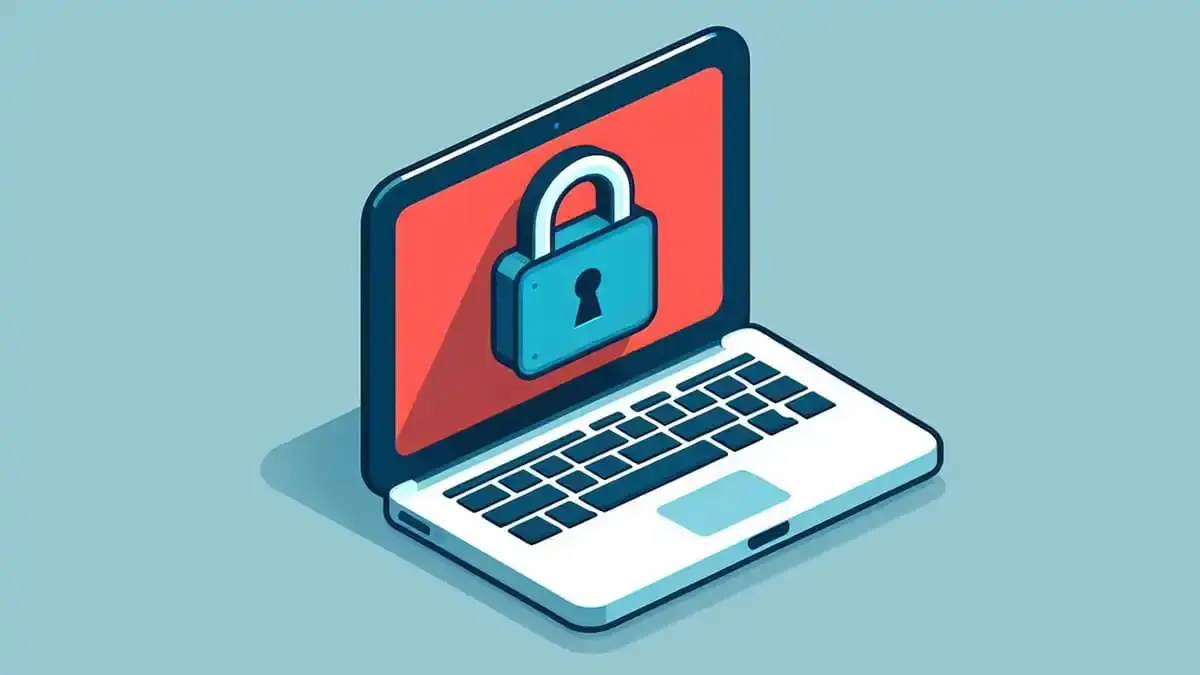- cross-posted to:
- technology@lemmy.ml
- cross-posted to:
- technology@lemmy.ml

The title should be “You should understand what a VPN is for, before using one.”

Another reason to use a VPN is that ISPs have every motive to sell your browsing data and they do. Unlike many other groups tracking you, your ISP inherently has your meatspace name, address, and payment information making their data easily collatable and very valuable.
If you use the default DNS on their provided router they can even tell if someone purchased an XBox, Playstation, or any other smart device just from update and telemetry lookups.
As the article says, by using a VPN youre using someone else’s ISP making that info worthless.
If your threat model includes preventing ad networks from gathering data, a VPN absolutely is a tool to prevent that. Do you have to pay for a service? Probably not if you’re technical enough; a VM in a data center is probably sufficient.

Yep. BIG deficiency in this article. I don’t use a VPN because of shadowy “hackers” who sit in front of their keyboards with a pistol and a balaclava. I use it because ISPs and governments have demonstrated they can’t be trusted.
How about this?
I live in the United States, where I already have no digital privacy, and tunneling my internet traffic through a VPN owned and operated in another country won’t meaningfully improve my privacy or safety
Uh, what? If someone wants my traffic logs in the US, now they have to go through Mullvad, which has a track record of not providing or collecting it.
They don’t even know who I am, much less have all the data that my ISP has about me. So selling it would be pretty useless
Oh last edit: turns out this is the guy who was trying to well ackshually us into thinking Chrome nerfing ad blockers is not a big deal.

ISPs have every motive to sell your browsing data and they do
That sounds very illegal under the GDPR

Oh, if us in America were as privacy minded as the EU. People here gladly hand over every bit of data about themselves either to feel safer or just to save 10 cents on groceries.

People do that everywhere, the only difference is the laws that cover what can be done with that data

Do you have to pay for a service? Probably not if you’re technical enough; a VM in a data center is probably sufficient.
Where are you getting free VM hosting?
also, i feel like most of your argument is rendered moot with encrypted dns solutions like DoH.

Where are you getting free VM hosting?
The comment was in reference to VPN services. Sadly, given theres no right to privacy, you must pay to not be tracked.
i feel like most of your argument is rendered moot with encrypted dns solutions like DoH.
You misunderstand. Large ISPs run their own DNS servers which are preconfigured into the devices they sell. They are the intended recipient and you’d just be encrypting it in transit to their servers.

i don’t think many ISPs even offer encrypted DNS, i’m talking about using a third party dns. you can set up a standard dns endpoint that uses DoH upstream to the server of your choice. cloudflared makes this really easy if you are happy using their dns, and you can even have it sit upstream of something like pihole, giving your whole home network dns tracking protection and ad blocking without the overhead of a VPN.

VM in a data center is probably sufficient.
Um, those aren’t cost-free.

Oracle Cloud has a free tier and this video shows you how to set up your own VPN there. I wouldn’t really recommend this as a free VPN solution though. If you need something that’s free, go with Proton VPN’s free tier, Proton is pretty trustworthy and they are very upfront about their business model…

You could also just set your DNS to one of the many free DNSSEC providers. That’s even more secure because there are fewer middle men who can track you. After all, while your ISP may not be able to see that DNS traffic, if you arn’t using DNSSEC anyway then your VPN and their upstream provider can.
Besides, nearly all tracking nowadays uses third party browser fingerprinting, which a VPN does nothing about. Practically, a VPN is far more security theater than actual security.
Also, isn’t it funny that sending all your data though a second nation where it no longer legally counts as Amarican internet traffic became really well advertised right after a major scandal came out where the NSA was illegally monitoring American traffic, and more protections were put in place to keep them from doing it again?
You don’t even need the VPN company to be in on it, a group like the NSA can pretty easily compromise a “no logs” VPN’s technical infrastructure or that of their upstream provider, and they’re even got people who feel like they have something to hide to self select for it to cut down on the amount of boring traffic in the first place.

This is absolutely not what DNSSEC is. DNSSEC provides authenticity of the response, not privacy. You’re describing a means of encrypted name resolution, like dns-over-tls, dns-over-https, etc.

Right, I had just responded off the top of my head and got the name wrong. Point still stands.

Potentially, but precision is important, especially if you’re going to make sweeping claims about a topic, acting as an authority.

I mean it was just mixing up two similar names, the point remains the same.

Direct report from the FTC. ISPs are DIGGING into your web behavior. https://www.ftc.gov/reports/look-what-isps-know-about-you-examining-privacy-practices-six-major-internet-service-providers

Thank goodness we absolutely know for certain that no VPN would ever sell your browsing data.

meatspace name I laughed reading this, it has a strong SMBC vibe :)

Well, that article was a hot mess.
I appreciate the authors effort and they are correct about lack of “what is VPN” articles that are not written by VPN-vendors in marketing purpose. But I’m not sure if this was it.
Writing an article meant to “debunk” misconceptions and getting two core concepts, Security and Privacy mixed up right from the start wasn’t very good.
A lot of time was spent on explaining HTTPS and how it somehow magically makes you and your data secure on the Internet and it completely missed to mention who the potential threat actors thwarted by HTTPS are?
Could have probably used a chapter on how actual threats (both security and privacy) work and how don’t have much to do with the level of encryption your TCP/IP connection happens to encapsulate.
The last chapter with the first 3 bullets was pretty good though. That could have just been the whole article and it would have been alright.
Oh well. Attempt was made.

Not only was it messy, but the point they were trying to make could have been boiled down to a few lines for each point and still have been understandable to anyone who’s not familiar with the VPN’s function. I do appreciate the call out for the true main purpose of a VPN (🏴☠️🏴☠️🏴☠️) though.

When to use a VPN
VPNs are not magical fixes for privacy and security on the internet. However, there are some specific situations where they are useful tools.
Network blocks and internet censorship. VPNs can help you access sites and services that are restricted by your local network or government. That’s why downloads of VPN apps in Russia skyrocketed in 2022, after the country’s invasion of Ukraine and more services became blocked. The same trend happened in Virginia and other U.S. states after they passed laws requiring photo identification for adult websites.
Piracy. Internet service providers can sometimes detect when you are pirating movies, TV shows, music, or other media and send you angry letters. You can avoid that entirely by using a VPN when you download or torrent copyrighted material. Do what you want 'cause a pirate is free… but use a VPN.
Region-locked content. This is a popular selling point for VPN companies that is actually true: VPNs can help you access online content that is officially restricted to a certain region. Switching your VPN server to a different country can change what movies and shows are available through Netflix, and UK-based VPN servers are frequently used to access BBC iPlayer content in other countries. However, this is not always reliable, as service providers will usually detect VPN servers after a while and block them.
Accessing your home network. Setting up a VPN server at home is one way to access devices on your home network (such as self-hosted security cameras, media servers, and remote desktop) without opening up more of your network to the rest of the internet.
There are other more niche use cases for VPNs, but those are the most popular ones that aren’t completely made up.

I know exactly how litigious Funimation is. I absolutely need a VPN. :D

Gonna have to disagree here. The article’s main point seems to be “privacy is impossible” because there are other ways to track you that it assumes you’re not accounting for:
It’s true that your IP address is your main identifier on the internet. However, there are many other identifiers that are used for tracking your activity across the internet. Most advertising networks, including Google Ads, primarily use cross-site cookies (eventually to be replaced by the Privacy Sandbox) to keep track of you across the web. Google uses an advertising ID for the same purpose on Android devices, and Apple has a similar ID for iPhone and iPad devices. VPNs do not change any of those identifiers.
There are also other browser features that can be used for tracking you across the web, such as the User Agent and HTML5 element, in a process called fingerprinting. Web browsers have been reigning in this behavior over the past few years.
These are all true but there are also ways to circumvent (to some degree) all of those other tracking methods and doing so in conjunction with a VPN will give you a more private and secure browsing experience.

Clearly whoever wrote this has not tried torrenting popular content 🤨

Just use any old proxy either paid for in cash in the mail, or in a country that absolutely won’t cooperate with yours legally when you need it.
Your VPN will absolutely fold under the slightest legal pressure.

Some of them don’t even log the data required to cooperate with requests. Mullvad is one.

IVPN is another

how do they prove that they both don’t and can’t?

Better than most but I couldn’t find mention of anything that prevents them from complying with secret requests to begin data monitoring.
Potentially where they’re based that’s unconstitutional or something but I didn’t see evidence of such.

Nevermind the government or hackers, I use a home-grown VPN to keep Comcast off my ass.

Understandable, I would never trust my internet service provider either

I’m not quite paranoid enough to believe that all of these anti-VPN articles are propaganda sponsored by people who want to make mass surveillance easier, but when it’s from someone whose other recent posts include one titled “Youtube ads aren’t actually that bad” and two explaining why Google’s Manifest V3 is great, I’m at least going to suspect it as a possibility.

It’s definitely possible they’re sincere.
It’s not at all possible that I’m going to care about or respect anything they have to say about privacy or security.

Another good use for VPN is to counter dynamic pricing. My wife visited a website some time ago to request the price for a ticket. When she visited the website a second time the price had increased considerably. However when visiting the price with VPN it was the original price again. It saved her a lot of money.

You can also get around this by using a non-airline owned travel metasearch engine like Kayak.

Thanks for the tip.

IVPN created an awesome website called doineedavpn.com where they honestly and objectively answer that question. It’s one of the reasons why I like IVPN as a VPN provider, they are honest and don’t hide anything from their customers. Also their apps are open source and they support anonymous signup.

